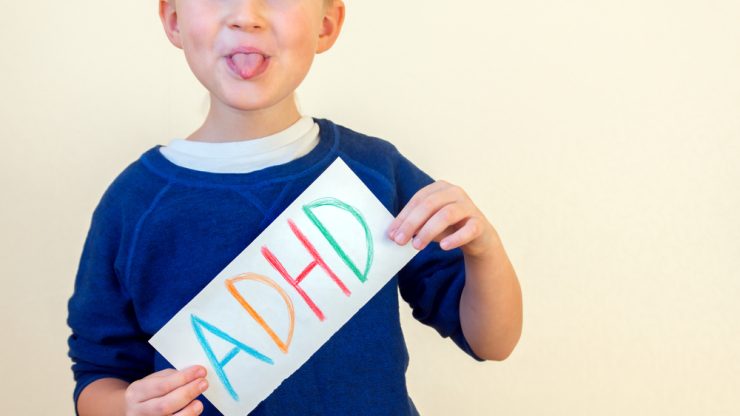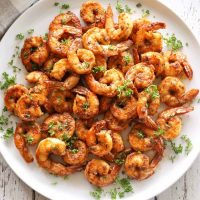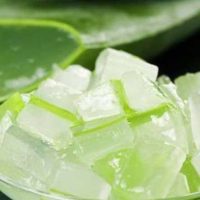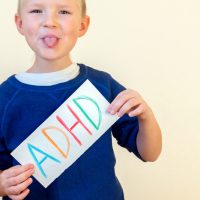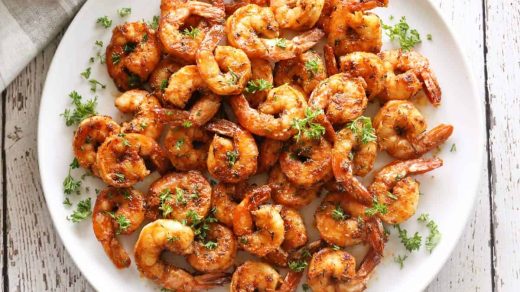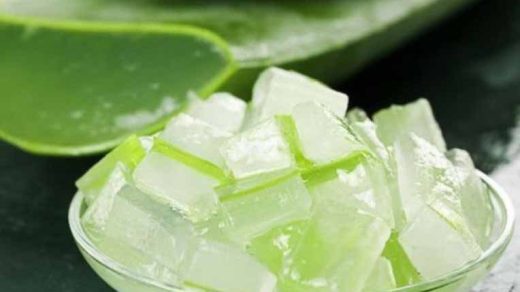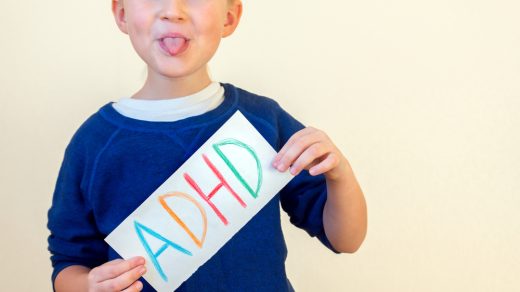A common diagnosis for kids and teenagers is ADHD. (Adults may also consume it). Numerous families have inquiries. They are curious as to whether there are any non-pharmaceutical, all-natural methods of calming the ADHD brain. Fortunately, there are natural remedies that might lessen the symptoms of ADHD.
What Is ADHD?
Today’s youth frequently suffer from attention deficit hyperactivity disorder (ADHD). Roughly 10% of kids between the ages of 3 and 17 have an ADHD diagnosis, according to the CDC.
Parent surveys and healthcare claims indicate ADHD affects boys more than girls (13% vs. 6% diagnosed). It is less noticeable in girls because they typically present with different symptoms than in boys. As a result, medical professionals might underdiagnose girls with ADHD.
Hyperactivity, inattentiveness, and a lack of impulse control are traits of ADHD. Still, not every child with ADHD exhibits every symptom. Some people are hyperactive and impulsive, while others are simply inattentive. Of course, impulsive, hyperactive, and inattentive behavior can occur in children with ADHD.
ADD Has Been Reclassified
ADHD now encompasses what the medical community once referred to as attention deficit disorder (ADD). ADHD that is inattentive rather than hyperactive or impulsive is now recognized as ADD. Make sure to get your child diagnosed by a professional if you suspect they may have ADHD.
It is crucial to remember that multiple tests are typically required to diagnose ADHD. When a patient has had some or all of the related symptoms for at least six months, a doctor will make a diagnosis.
How Is ADHD Handled by the Medical System?
Typically, stimulant medications are used in the conventional treatment of ADHD. Most people probably take Adderall and Ritalin for ADHD. On the other hand, headaches, insomnia, and anxiety are among the side effects that these drugs may cause.
As part of a treatment plan, physicians will occasionally incorporate additional interventions, such as cognitive behavioral therapy (CBT). Cognitive behavioral therapy (CBT) teaches patients coping mechanisms to lessen symptoms. Research shows that CBT improves symptoms for many adolescents with ADHD.
Another effective supplemental therapy for ADHD is neurofeedback, also known as EEG biofeedback. With the use of scalp sensors, neurofeedback teaches kids how to control their own brain activity. Children can control their brain waves by using computer screen feedback.
For people with ADHD, neurofeedback dramatically lowers impulsivity and inattention. Additionally, it lessens hyperactive conduct. After treatment, these gains may persist for up to six months.
With all of its possible side effects, medication is still the primary form of therapy that is recommended. Because of this, a lot of people look for alternative therapies and way of life adjustments.
Causes of ADHD
There is no one cause for the complex disorder known as ADHD. (Genetics alone cannot be the cause). Each person experiences it differently, so a personalized treatment plan is required.
Among the factors that may exacerbate ADHD are the following:
- Genetics: It’s true that ADHD can run in families. If a parent has ADHD, a child is over 57% more likely to also have it. If a sibling has ADHD, they’re 32% more likely to have ADHD, too. As scientists learn more about genetics, they’re also looking at mutations that could increase risk.
- Prenatal stress: A 2018 study looked at the impact of stress during pregnancy and ADHD on the child later on. Mothers under high stress during pregnancy had twice the risk of having a child diagnosed with ADHD compared to less-stressed mothers.
- Prenatal diet: Another study involved about 1,240 mother-child pairs. Children whose mothers ate healthy during pregnancy were less likely to develop ADHD than those whose mothers had an unhealthy diet.
- Prenatal toxin exposure: Another theory is that exposure to toxins during pregnancy could increase risk. Toxins from pesticides, heavy metals, aluminum-containing vaccines, and chemicals from plastics may contribute to Autism and ADHD.
- Screen Use: A 2019 study from the University of Alberta found a connection between early screen use and ADHD symptoms. Children who spent 2+ hours in front of the screen daily before age five were 7.7 times more likely to be diagnosed with ADHD than those who spent 30 minutes or less in front of a screen.
- Diet: Those with certain dietary habits may be at a higher risk for ADHD. High-sugar, low-nutrient foods, and foods with additives and preservatives may increase risk.
- Sleep Apnea/Mouth Breathing: Sleep apnea and mouth breathing are also worth considering. These situations can cause oxygen deprivation and mimic ADHD symptoms.
- Modern education: Some cases of ADHD may not be physiological at all, but a symptom of a one-size-fits-all education system. Some experts argue that the best remedy for ADHD would be a change in how we educate children. Award-winning principal John Taylor Gatto’s books are a great read for more on this topic!
A number of variables frequently work together to predispose someone to ADHD. Effective therapies therefore differ depending on the child. I know I have said it a lot, but each of us serves as our own primary care physician. Additionally, we frequently take on the role of our children’s main investigators and advocates as parents. To determine what works, we gather research and test medications and supplements.
Natural Remedies for ADHD
The difficulties kids with ADHD have maintaining self-control or doing well in school often lead to low self-esteem in them. When it comes to self-esteem problems, receiving a diagnosis can be helpful, but it is also critical to address the underlying causes. Here are some suggestions for naturally treating ADHD.
Healthy Diet
A real food, nutrient-dense diet is important for overall health and well-being. Because many ADHD sufferers have nutrient deficiencies, it’s especially important to focus on diet. A healthy diet includes:
- Quality protein: Grass-fed, pastured, and wild-caught meat, poultry, and fish are healthy sources of protein. Poultry is great because it contains tryptophan which can help the body produce serotonin. The “feel-good neurotransmitter” can help with impulse control, mood, and restful sleep.
- Healthy fats: Stick with healthy fats from grass-fed and pastured animal products. Plant-based fats, like coconut oil, avocados, and olive oil, are also good. Fat helps stabilize blood sugar and supports healthy brain function.
- Lots of fresh vegetables: Veggies are full of nutrients the body needs to function well. Leafy greens are especially rich in B vitamins our brains need.
- Oily fish: Instead of taking fish oil supplements, you can include oily fish (like salmon and anchovies). Salmon is also a good source of vitamin B6, essential for the ADHD brain.
Foods to Avoid
Additionally, some foods do more harm than good. These include:
- Processed foods: Food additives may contribute to ADHD symptoms in some kids. One of those additives is food coloring. Synthetic dyes have been linked to ADHD in children. Processed foods are also low in nutrients and high in sugar. These are foods anyone who wants to be healthy should avoid anyway.
- High-sugar foods: This is especially true for processed sugar foods. High sugar in the diet is generally not healthy, but for some kids with ADHD, sugar is a big trigger for symptoms. Research doesn’t point to all sweeteners being a problem. (Honey and maple syrup may be fine). However, processed sugar may worsen symptoms.
- Food allergens: Studies show a link between food allergies and ADHD. Try dropping the top allergens like dairy, eggs, fish, shellfish, tree nuts, peanuts, and wheat. Then remove other known food allergens –from food allergy testing.
Many families have found that changing the diet reduces symptoms significantly. Certain diets, like GAPS (gut and psychology syndrome) address the root cause by healing the gut.
Supplements
Even though eating is the best way to obtain nutrients, there are situations in which taking nutritional supplements can be helpful. Supplements can assist in bringing deficiency levels back to normal. These are a few supplements that experts think could be beneficial for kids with ADHD.
Fish Oil
Supplies omega-3 fatty acids, which support brain function. A 2017 study found that fish oil supplementation reduced ADHD symptoms. But since there is additional research pointing to possible risks, I advise using caution when supplementing with fish oil.
Whenever possible, our family sources its omega-3s from fish. For kids with ADHD, 500–1000 mg of fish oil per day is a suitable dosage.
B-Complex Vitamins
A vitamin B complex contains B6, folate, and B12, essential for the nervous system. Research from 2016 shows lower levels of vitamins B2, B6, and folate increase the risk of ADHD. Low B2 and B6 may also aggravate symptom severity.
Certain gene mutations affecting the use of B vitamins may also increase risk. A test like the Nutrition Genome is a good place to start.
Vitamin D
There are vitamin D receptors throughout the central nervous system and in the hippocampus. Vitamin D activates enzymes in the brain and cerebrospinal fluid. These enzymes are involved in neurotransmitter synthesis and nerve growth. Therefore, it’s essential for brain function!
Research suggests vitamin D supplementation in children with ADHD may enhance cognitive function. Note: Since Vitamin D is fat-soluble, it’s best to do a blood test before supplementing. Getting vitamin D from sunlight may be more beneficial than supplementing. Read all about it in this post.
Minerals
Magnesium, calcium, and zinc, in particular, are important for soothing the nervous system. A 2011 study found low levels of these nutrients in children diagnosed with ADHD. I don’t supplement with calcium as many of us get too much.
Probiotics
Preliminary research suggests that ADHD may be an immune reaction. Because the gut affects the immune system, probiotics may help. I take Just Thrive Probiotics and give them to my kids since tests show they survive the stomach and make it to the gut.
Melatonin
Many children with ADHD struggle with sleep issues, and there’s a strong link between insomnia and ADHD. In a 2009 study, melatonin helped improve behavior and mood in children with ADHD. Researchers used a dosage of 3 to 6 mg depending on the child’s weight.
While I’m not a fan of melatonin supplements for kids, there are ways to naturally boost melatonin.
GABA
According to a 2012 study, children with ADHD tend to have low levels of this important amino acid. GABA calms the nervous system, so adding a GABA supplement may be beneficial. When taking amino acids, it’s important to work with a practitioner who specializes in this area.
Herbs
Certain herbs may also help. Bacopa and ginseng are good places to start. In one study, children aged 6 to 12 had success taking 225 mg of Bacopa per day for six months. In a small 2011 study, children with ADHD were given 1,000 mg of ginseng for 8 weeks. They had improvements in anxiety, personality, and social functioning. Ginkgo biloba may serve as a complementary treatment to medication.
Brain “Retraining” Alternative Treatment for ADHD
If you’re familiar with neuroplasticity, you likely know a bit about this. It’s the idea that the brain can learn new ways of functioning. Brain Harmony therapy uses auditory and visual protocols to calm the nervous system. It can help participants have better outcomes with other therapies.
To learn more, listen to this podcast episode which discusses specific ways this therapy can benefit the brain.
Rethink Education and Learning Environment
If it’s true that ADHD can be a symptom of the modern education system, then rethinking this education system would be a natural remedy. I’m a big advocate for children getting more physical exercise and time outside. So, I’d love to see these changes implemented… even for children not diagnosed with ADHD!
According to ADDitude, some of the things that can help with ADHD students include:
- Extra recess time (recess is also a great time for kids to practice social skills)
- Shorter lessons with breaks in between
- Tests scheduled earlier in the day and kept short
- Using creative projects in place of tests
- Using standing desks or fidget chairs
- Offering tactile learning activities (learning spelling with magnet letters, for example)
- Mixing high-energy classes like gym or music between low energy classes like reading or math
- No homework
School Options
Some families (including ours) have opted to homeschool. Homeschooling lets us customize the education for children who find traditional schools challenging. Another option is attending a private school that uses similar techniques.
Not everyone has the option of homeschooling or private school, and public schools are getting better. Many now recognize that sitting still for a long time isn’t ideal, even for kids without ADHD. An Edweek article explains that when children are more active, they do better in school. They’re more focused, process information faster, and remember things better than kids who sit still all day.
You can talk to your child’s teacher and see if they can help find solutions. Many teachers now have training in ADHD. If not, they may know someone who can help. Even adding a few 5-minute breaks for physical activity during the school day might ease some ADHD symptoms.
Support Groups
Support groups in the community can help friends and family of children with ADHD. Families with children who have dealt with ADHD before may be able to recommend the best physician or therapies.
You can explore CHADD and the Attention Deficit Disorder Association for ADHD support. They both support educational and networking events. Asking your child’s physician for suggestions on nearby support groups is another option.
Natural Treatments for ADHD: Conclusion
A complex disorder, ADHD affects a large number of Americans. It does not have to ruin lives, though, or necessitate medicine all the time. Children with ADHD can benefit from a variety of natural remedies, but it is still important to see a healthcare provider for medical advice.

